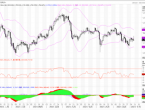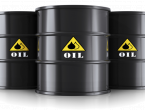EUR/USD
1.18032
0.148%
Gold
5192.00
1.867%
Oil
67.167
1.277%
USD/JPY
154.440
-0.399%
GBP/USD
1.35136
0.182%
GBP/JPY
208.708
-0.217%
The final reading of U.S. durable goods orders in December was -1.4% month-on-month, compared with a previous reading of -1.40%.U.S. factory orders excluding transportation rose 0.4% month-on-month in December, with the previous figure revised from 0.20% to 0.1%.US factory orders fell 0.7% month-on-month in December, compared with an expected decline of 0.5% and a previous reading of 2.70%.Naftogaz, Ukraines state-owned gas company, says it has secured the first delivery of U.S. liquefied natural gas through Germany.On February 23, US President Trump stated on social media that as president, he no longer needs to return to Congress for tariff approval. These tariffs have already been approved in various forms, and this has been the case for a long time. Moreover, even that absurd and flawed Supreme Court ruling reaffirmed this.











